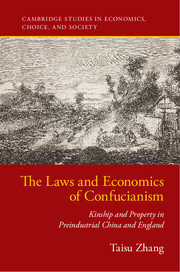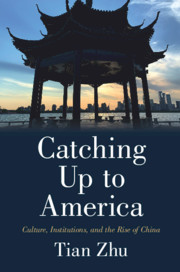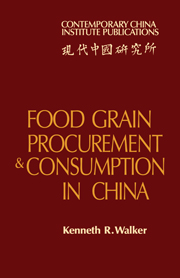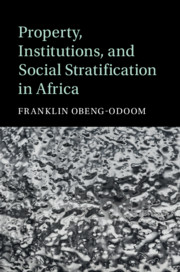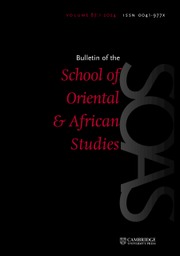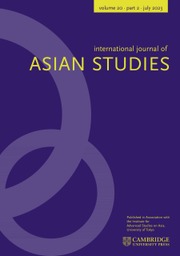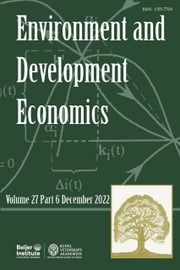The Laws and Economics of Confucianism
Kinship and Property in Preindustrial China and England
$41.99 USD
Part of Cambridge Studies in Economics, Choice, and Society
- Author: Taisu Zhang, Yale University, Connecticut
- Date Published: September 2017
- availability: This ISBN is for an eBook version which is distributed on our behalf by a third party.
- format: Adobe eBook Reader
- isbn: 9781108515436
Find out more about Cambridge eBooks
$
41.99 USD
Adobe eBook Reader
Other available formats:
Paperback, Hardback
Looking for an inspection copy?
This title is not currently available on inspection
-
Tying together cultural history, legal history, and institutional economics, The Laws and Economics of Confucianism: Kinship and Property in Preindustrial China and England offers a novel argument as to why Chinese and English preindustrial economic development went down different paths. The dominance of Neo-Confucian social hierarchies in Late Imperial and Republican China, under which advanced age and generational seniority were the primary determinants of sociopolitical status, allowed many poor but senior individuals to possess status and political authority highly disproportionate to their wealth. In comparison, landed wealth was a fairly strict prerequisite for high status and authority in the far more 'individualist' society of early modern England, essentially excluding low-income individuals from secular positions of prestige and leadership. Zhang argues that this social difference had major consequences for property institutions and agricultural production.
Read more- Of interest to scholars across multiple disciplines
- A non-generalized exploration of one of the largest problems in history, Sino-English divergence
- Does not rely on quantified models, and will appeal to social scientists normally averse to econometric books
Awards
- Co-winner, 2018 Gaddis Smith International Book Prize, Yale MacMillan Center
Reviews & endorsements
'In this lucid and thought-provoking study, Taisu Zhang creatively and empirically reinterprets the causal relationships among cultural norms, property institutions, and socioeconomic behavior in early modern China and England. This holds profound implications for the study of global economic history, Sino-Western comparison, and Chinese law and society. This important book will not fail to stimulate new inquiries and debates for many years to come.' Li Chen, University of Toronto, author of Chinese Law in Imperial Eyes and President of the International Society for Chinese Law and History
See more reviews'Marrying cutting-edge historical archival work with remarkable cross-disciplinary theoretical breadth, Taisu Zhang boldly and brilliantly raises vitally important questions about the interplay of culture, law, and economic institutions in pre-industrial China and England. Anyone interested in global economic history or in today's China will want to engage this powerful but inviting book.' William P. Alford, Henry L. Stimson Professor of Law, Harvard Law School, Massachusetts
'Taisu Zhang has taken a bold leap into the heart of the Great Divergence debate. Combining the theoretical tools of law and economics, the insights of a comparative legal historian, and the skills of a meticulous archival investigator, Zhang offers a new take on norms governing land alienation in early modern China and England and their impact on economic development.' Madeleine Zelin, Dean Lung Professor of Chinese Studies, Columbia University, New York
Customer reviews
Not yet reviewed
Be the first to review
Review was not posted due to profanity
×Product details
- Date Published: September 2017
- format: Adobe eBook Reader
- isbn: 9781108515436
- availability: This ISBN is for an eBook version which is distributed on our behalf by a third party.
Table of Contents
1. 'Dian' sales in Qing and Republican China
2. Mortgages in early modern England
3. Kinship, social hierarchy, and institutional divergence (theories)
4. Kinship, social hierarchy, and institutional divergence (empirics)
5. Kinship hierarchies in Late Imperial history
6. Property institutions and agricultural capitalism
Conclusion
Index.
Sorry, this resource is locked
Please register or sign in to request access. If you are having problems accessing these resources please email [email protected]
Register Sign in» Proceed
You are now leaving the Cambridge University Press website. Your eBook purchase and download will be completed by our partner www.ebooks.com. Please see the permission section of the www.ebooks.com catalogue page for details of the print & copy limits on our eBooks.
Continue ×Are you sure you want to delete your account?
This cannot be undone.
Thank you for your feedback which will help us improve our service.
If you requested a response, we will make sure to get back to you shortly.
×
